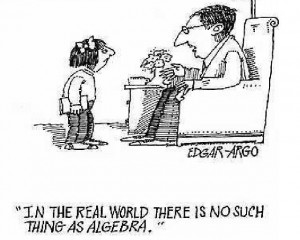Write about the role of “perplexity” in learning or knowing (80a-d, 84a-c).
To summarize the two selected sections of Plato’s Meno, Meno begins by saying that Socrates has “baffled” him about what being good really means, and that he has “got no idea how to answer the question. And yet, damn it, [he’s] talked about ‘being a good man’ thousands of times” (80b). Then, in the next section, Socrates explains to Meno that baffling his slave by proposing a difficult geometry question was not intended to mistreat or mislead him, but rather guide him to the true answer.
The combination of these two passages leads to the “perplexity” in learning or knowing. In the geometry question, Meno’s slave thought he knew the answer, but with a few simple questions posed by Socrates, he was thrown into confusion and doubted what he previously thought he had known. So by baffling the slave, Socrates helped him realize, what he did not know, thus what he needed to learn. This is also echoed in Meno’s Paradox, “that it’s impossible to try to find out about anything – either what you know or what you don’t know” (80e). Exemplifying the first part of the paradox, the slave thought he knew the answer so there was no point in trying to find out anything more about the problem at hand. And for the second part of the paradox, before Socrates’ perplexed him with probing questions, he had no idea that there was anything wrong with his answer or there was a different method of obtaining the correct answer. Through perplexity he was able to dismiss what he thought he knew and get out of the paradox to learn the true answer.
I find that most students have a similar experience with the confusion of knowing and learning in science classes, specifically chemistry. In every chemistry class I have taken, the professor teaches students some property or rule that the students are expected to master. Then students fall under the assumption that they know the property and are content with the explanation given of why that property is true. But as students move on to later semesters and more advanced material, they get confused very quickly. I have had professors directly tell the class that a rule we have learned is actually untrue, or that the explanation is not as simple as we thought. This is often perplexing and, more recently, I thought I knew everything there was to know about significant figures, which are essentially rounding rules for numbers. But on my first day of analytical chemistry class, the professor told me the rules I had known from previous classes were false and I was confused so I had to learn how to arrive at the correct answer. In conclusion, chemistry students are constantly thrown into the perplexity of believing they know something, then entering a state of confusion in order to reveal what they do not know, so they learn something new, like Meno’s slave and Socrates.
Works Cited
Plato, Protagoras and Meno, Penguin, 2006. Trans. Beresford.



